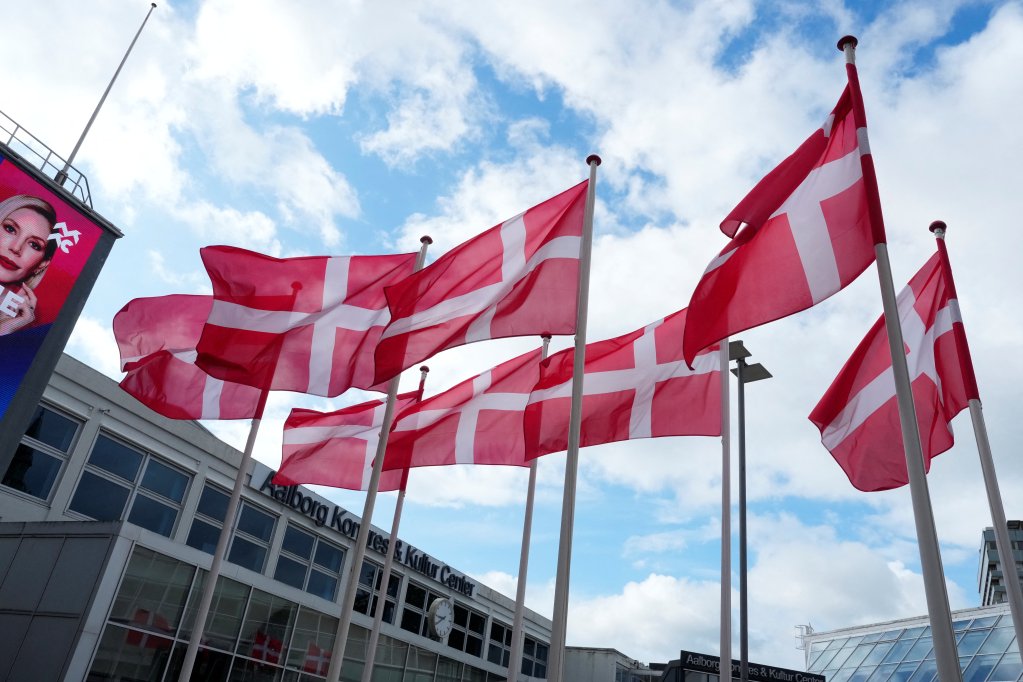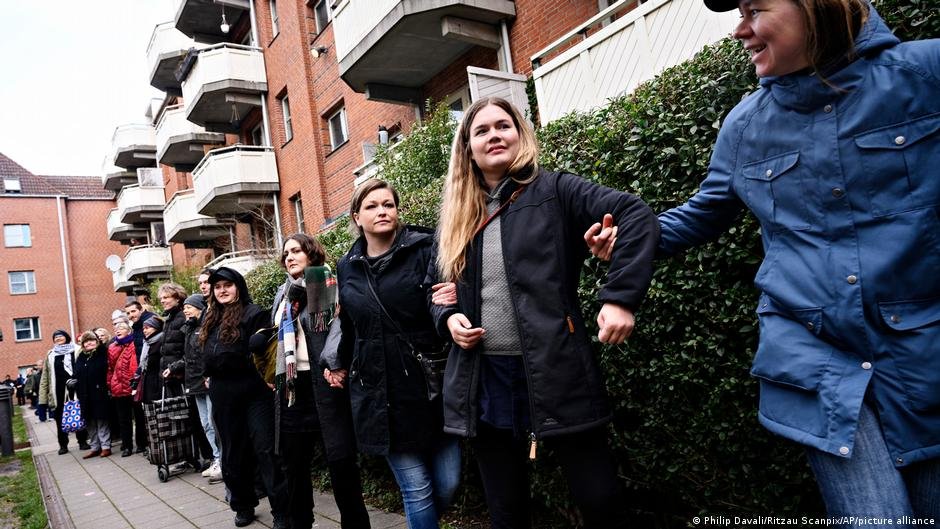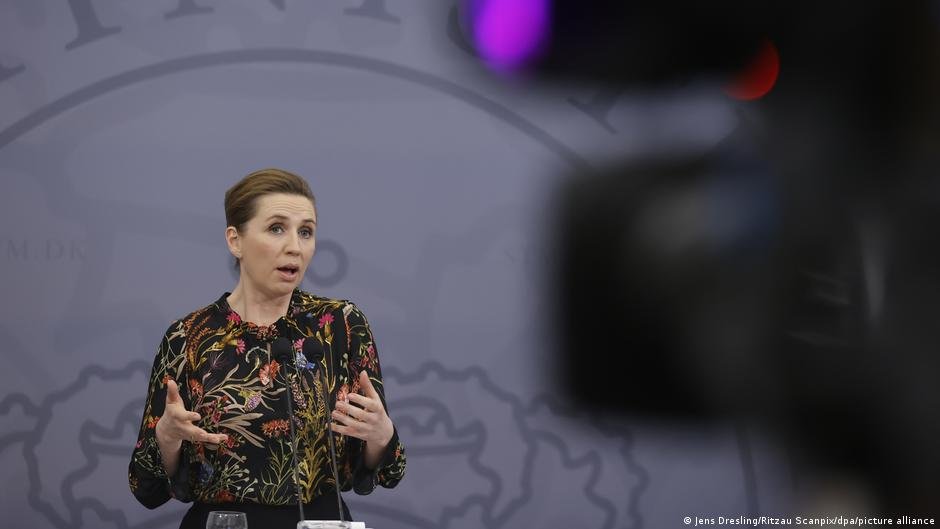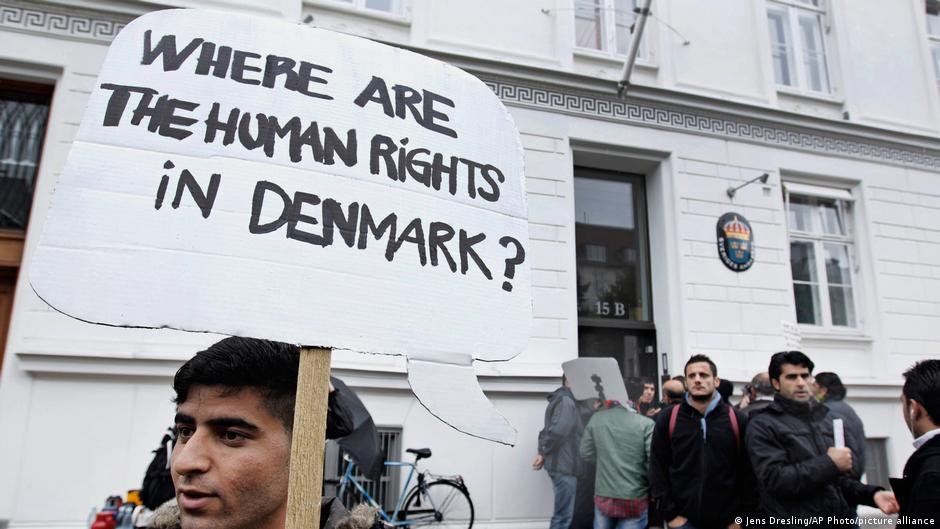Denmark currently holds the revolving EU Council presidency. Part of its mission is to push stricter migration policies -- including external asylum processing and housing laws targeting "parallel societies" on an EU-wide basis. Legal experts warn the measures may violate EU anti-discrimination laws and international refugee protections however.
As Denmark enters its second month leading the revolving EU Council presidency (running until December 31, 2025), migration remains central to its agenda. Prime Minister Mette Frederiksen has emphasized the need to "lower the influx of migrants to Europe," signaling support for harder EU-wide measures. She noted that ideas once seen as politically marginal or extreme are increasingly finding support among national governments -- even where they are not yet widely accepted in Parliament.
Denmark's asylum policy underwent a major transformation after millions of migrants arrived in the EU in 2015, including in Denmark. In 2019, its parliament approved a legislative "paradigm shift," making temporary protection the default for all new refugees, not just those who arrived in periods designated as "crisis." This marked a clear shift away from long-term integration policy toward a return‑oriented approach.
As more European governments adopt tougher stances on migration, Denmark’s model is increasingly regarded as a potential blueprint for the adoption of restrictive policies across the bloc.
Read AlsoMake repatriation rules more effective –Denmark takes over EU presidency
Legal and human rights implications
On July 15, Migration Minister Kaare Dybvad addressed the European Parliament’s Justice Committee, calling the current asylum system operating in the EU "dysfunctional." He outlined priorities that include reforming repatriation rules, redefining the EU’s list of safe third countries, and establishing return hubs in third states to process asylum claims pending deportation.
"Return hubs… offer possibilities which are not to be neglected," stated Dybvad, while acknowledging concerns about their compatibility with human rights standards.

Legal experts and rights organizations warn these proposals raise pressing questions around the principle of non‑refoulement, access to fair procedures, and legal oversight under both international and EU law.
In an article published by Euronews, Céline Mias of the Danish Refugee Council cautioned: "The current trend… externalising asylum processes is not only ethically questionable -- often violating the principle of non‑refoulement -- but also demonstrably ineffective in the long run."
Denmark itself once proposed a bilateral agreement to transfer asylum seekers to Rwanda for processing, though the plan was quietly abandoned after significant legal and logistical obstacles emerged. The European Commission had flagged the initiative as probably inconsistent with EU asylum law.
Read AlsoCouncil of Europe defends human rights court amid tensions over migrant returns
Housing law under EU scrutiny
Denmark’s 2018 housing reform -- known as the "parallel societies" or "anti-ghetto" law -- targets neighborhoods where more than 50 percent of residents are from non‑Western backgrounds and experience socioeconomic challenges. The law allows for forced relocations, increased policing, and the demolition or sale of public housing. The government frames this as a measure to reduce segregation and promote integration through geographic dispersal.
A recent documentary by the documentary strand on Germany's public broadcaster ARD --Weltspiegel highlighted the human impact, showing residents of areas like Mjølnerparken resisting forced relocations from communities where they have lived for decades. Many said they felt they had "no voice" in the process. Critics argue the law oversimplifies community dynamics in an effort to engineer demographics.

The law has also come under legal scrutiny. In February, a senior adviser to the European Court of Justice (ECJ) issued a non-binding opinion stating the law amounts to direct discrimination based on ethnic origin. The case was referred to the ECJ after tenants in affected neighborhoods challenged the policy. Under current law, designated areas must reduce the proportion of non‑Western populations below 50 percent by 2030 -- a goal critics argue disproportionately targets ethnic minorities and breaches EU anti-discrimination norms. A final ECJ ruling is expected later this year.
Meanwhile, the policies are still being applied in some Danish neighborhoods.
Read AlsoWhy Denmark is clamping down on 'non-Western' residents
A shift from Denmark’s liberal image
Once viewed internationally as a welcoming and liberal country, Denmark has shifted sharply in recent years. Since Mette Frederiksen and her Social Democratic government took office in 2019, the country has adopted increasingly strict migration policies. Central to this strategy is the so-called "zero vision" -- a goal to reduce asylum applications to zero. Although this stance has drawn international criticism, it remains largely popular domestically.
Initial reforms included stricter family reunification rules, cuts to social benefits for asylum seekers, and more deportations. Subsequent measures sharpened these tactics: border officials may now confiscate valuables worth more than 1,300 euros -- including wedding rings -- from irregular migrants to offset processing costs. Rejected asylum seekers are sometimes placed in detention-like facilities criticized by the Council of Europe’s Committee for the Prevention of Torture.

Other policies aim to discourage settlement: refugees are typically granted temporary protection, citizenship paths have narrowed, and returnees may receive up to 5,400 euros in relocation incentives. These measures have significantly reduced applications: in 2023, only about 2,100 people sought asylum in Denmark -- a country with nearly six million residents.
Denmark has also invested in messaging abroad. According to Handelsblatt, the government funded campaigns in African and Arab countries to discourage migration by highlighting the country’s strict asylum policies. Although the Rwanda plan never materialized, public discussion of it helped reinforce Denmark’s deterrent strategy.
Read AlsoDenmark: Unprecedented measures to signal to migrants they are not welcome
A broader debate over the ECHR
Denmark’s policy directions coincide with wider European debates over the European Convention on Human Rights (ECHR). Denmark led a group of eight other EU countries -- including Italy, Poland, and the Czech Republic -- in signing a letter calling for a "new and open-minded conversation" about interpreting the Convention, particularly relating to migration.
Signatories argued that recent rulings by the European Court of Human Rights may have stretched the Convention’s scope too far, limiting national governments' capacity to manage migration and maintain public order. Critics warn that challenging ECHR jurisprudence risks weakening protections -- especially concerning non‑refoulement and the right to family life.

The 2024 European elections saw a rise in support for parties advocating stricter migration controls. In response, the European Commission backed legislation to speed up deportations and tighten asylum procedures. Denmark is part of a 15-country coalition urging these reforms be written into EU law.
Still, the European Parliament remains divided. Center-right groups generally support Denmark's agenda, while liberal and progressive factions caution against undermining fundamental rights. Prime Minister Frederiksen has signaled readiness to confront opposition, affirming that migration remains a key political priority of Denmark's presidency.
Read AlsoItaly, other EU states urge rethink on European rights convention
